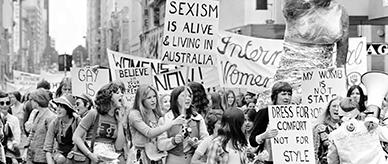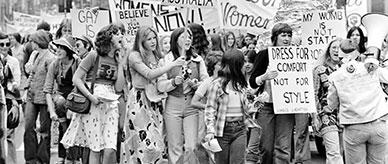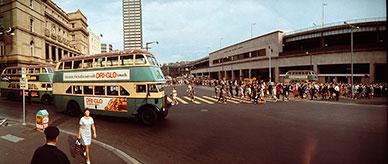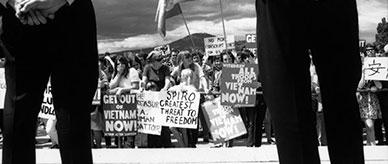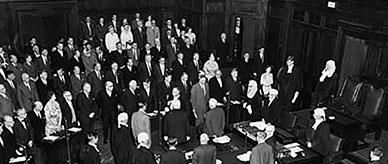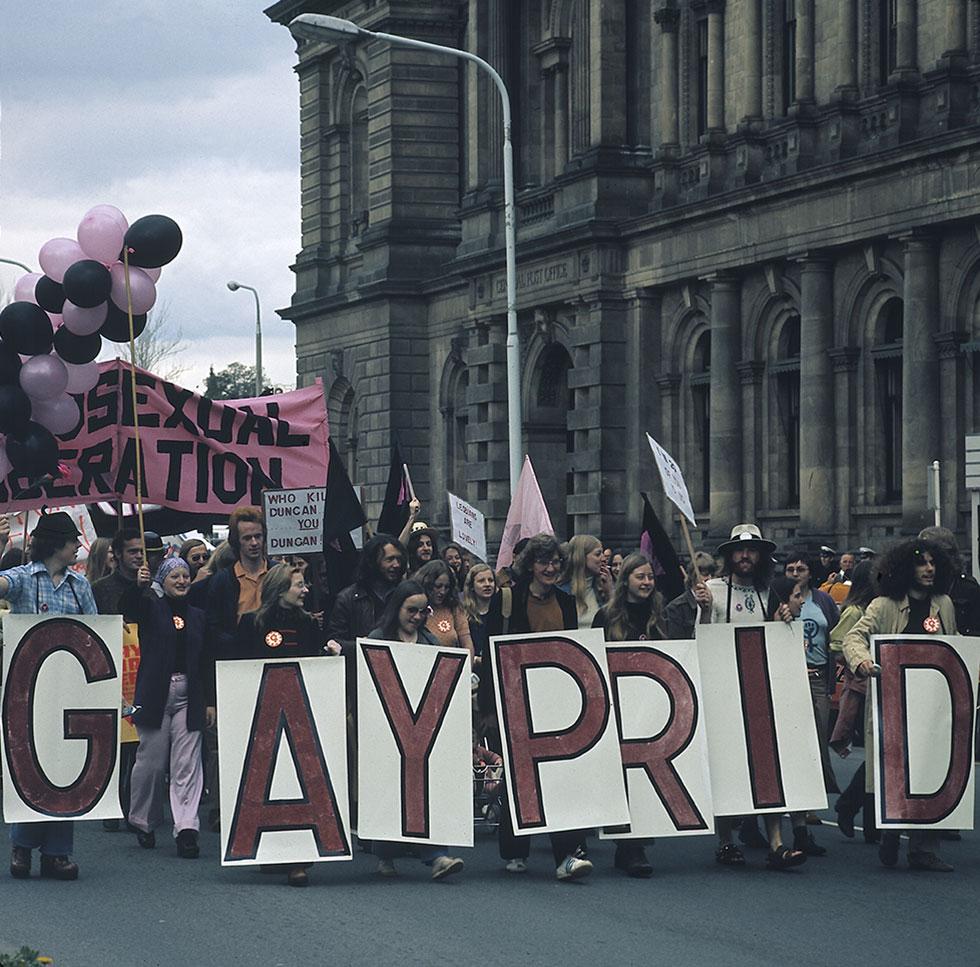


About this record
This record is a photograph of gay pride march held in Adelaide in 1973. It was created by the Australian Information Service, a federal government organisation that between 1940 and 1996 created a vast collection of photographs of Australian life. These photographs are now held by the National Archives of Australia.
This photograph shows marchers in the Proud Parade, Adelaide's first gay pride march, held on Saturday 15 September 1973. The march formed part of 'Gay Pride Week' activities held in capital cities throughout Australia. The march route went through central streets in Adelaide and was held on a busy Saturday shopping morning to create the greatest impact.
The march had multiple aims, including:
- recognising and celebrating gay lifestyles
- protesting against discrimination
- starting conversations on homosexual issues with the wider community.
Marchers displayed brightly coloured balloons and banners, sang, danced and chanted to attract attention. They distributed leaflets outlining the problems they faced and calling for legal and social reforms.
The 1970s were an important decade for gay and lesbian rights in Australia and around the world. Marches like this one challenged the conservative sexual attitudes that were held by society and reflected in discriminatory laws.
When this photograph was taken, sex between men was criminalised in all Australian states and territories. Meanwhile, sexual relationships between women were not recognised. Many gay and lesbian Australians faced threats, violence and harassment from the broader community because of their sexual identities.
Events like the 'Proud Parade' helped give gay and lesbian people visibility in Australian society, and contributed to eventual law reform. On 27 August 1975, South Australia became the first Australian state to fully decriminalise homosexuality. Other states slowly followed their example, reforming their laws gradually over the next decades. Tasmania was the last Australian state to decriminalise homosexuality in 1997.
In 2017, the recognition of same-sex marriages in Australia represented an important milestone for the LGBTQIA+ community. Today, pride events, marches and celebrations are held across Australia annually. In 2023, Sydney hosted WorldPride – an international pride festival – which was attended by hundreds of thousands of people.
Acknowledgments
Learning resource text © Education Services Australia Limited and the National Archives of Australia 2010.
Related records
Related themes
Need help with your research?
Learn how to interpret primary sources, use our collection and more.

